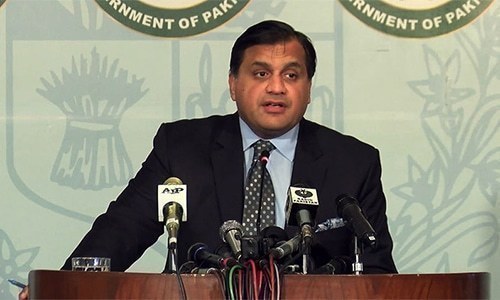Document reveals official US position on F-16s

WASHINGTON: The United States understood Pakistan’s need to use F-16 fighter jets to defend itself during an Indian intrusion in February this year, shows a document published on Thursday.
The document, obtained by the US News and World Report magazine, however, also shows that Washington was not happy with Islamabad’s decision to deploy these US-supplied aircraft and missiles to forward positions.
The US State Department raised both points in a letter then-undersecretary of State for Arms Control and International Security Affairs Andrea Thomson wrote to Air Chief Marshal Mujahid Anwar Khan.
“We understand from you that these aircraft movements were done in support of national defence objectives,” said the letter sent to Islamabad in August, months after the dog-fight in which a Pakistani F-16 brought down an Indian jet in Azad Kashmir.
But “the US government considers the relocation of aircraft to non-US government authorised bases concerning and inconsistent with the F-16 Letter of Offer and Acceptance”, it added.
Several diplomatic officials and analysts the magazine spoke to noted that the letter did not expressly mention the Indian complaint that using the F-16 to shoot down the Indian fighter jet was a violation of the terms of use for US-supplied weapons.
They argued that acknowledging this in a formal State Department transmission would have triggered procedures to reprimand Islamabad, which the Trump administration wanted to avoid.
The experts also noted that the Trump administration was now attempting to repair its contentious relations with Islamabad, which was once a close US ally in the wars against the Soviets and Islamists.
In March this year, Pakistani officials pointed out that the F-16 contract not only acknowledged the aircraft’s “deterrence value” to Pakistan in a future conflict with India, but also noted that it could prevent a nuclear clash between the two neighbours.
Both points are specifically mentioned in a message the then US ambassador in Islamabad Anne Patterson sent to the State Department on April 24, 2008.
“An enhanced F-16 programme also has deterrence value by giving Pakistan time and space to employ a conventional, rather than nuclear, reaction in the event of a future conflict with India,” wrote Ms Thompson, a military intelligence officer who first entered the administration as Vice President Mike Pence’s national security adviser.
Published in Dawn, December 13th, 2019














































